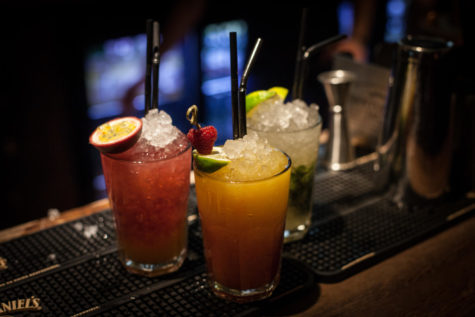Pandemic alcohol abuse impacts colleges
October 12, 2022

Reports of alcohol abuse have risen on Tulane University’s campus, a trend also evident at colleges nationwide, and one that health officials say the many stresses of the pandemic made worse.
Tulane Emergency Medical Services reported receiving 29% more calls for alcohol abuse during the 2020-2021 school year than the previous year and 17% more calls during 2021-2022 than the previous year. Total calls to the service have also increased each of those years.
Those shifts mirrored national trends; in 2020, according to the New York Times, 25% more Americans died from alcohol abuse related causes, such as liver failure, compared to the previous year. More Americans under the age of 65 died from alcohol abuse in 2020 than from COVID-19.
Katherine Theall, dean of public health at Tulane’s medical school, said that the causes of alcohol abuse, such as “economic stress, breakdown of norms and our social equilibrium” were all amplified during the pandemic.
“While the college campus is often characterized by higher social situations, it is not immune to what’s happening in society,” Theall said.
Although college students enjoy more opportunities to socialize than the general population and therefore are less likely to experience the isolation that is associated with abusive and addictive behavior, Theall said “students may still experience a great deal of loneliness,” and encouraged “those who are feeling alone or isolated seek help and support.”
Tulane faces unique challenges because of what Theall called “high social norms surrounding consumption” of alcohol in New Orleans and the prevalence of bars and clubs close to campus.
Theall said that although many college students will “age out” of their problematic drinking habits as their frontal lobes and decision-making skills develop and as they leave party heavy college culture, the risk for some remains.
“About half of students who meet alcohol use disorder criteria at age 19 maintain that status at age 25,” Theall said.
In 2017, President Mike Fitts addressed alcohol problems on campus in an email to students.
“While this issue is by no means unique to Tulane, our students use drugs and alcohol at a disproportionate rate, in ways that threaten their lives, their health, their safety and their academic success,” the 2018 email said.
“One of the illusions of youth is a sense of immortality, but the sad fact is that Tulane’s culture of excessive partying causes us real harm all too often.”
To differentiate between fun, social drinking and harmful drinking habits, Theall outlined the following warning signs: “blacking out” from drinking too much, missing class regularly due to being hungover, a dip in academic performance or “waking up shaky and feeling the need for more alcohol to calm the jitters.”
She said students should always be aware of how many drinks they consume and help friends ensure they do not overdrink.






















Leave a Comment